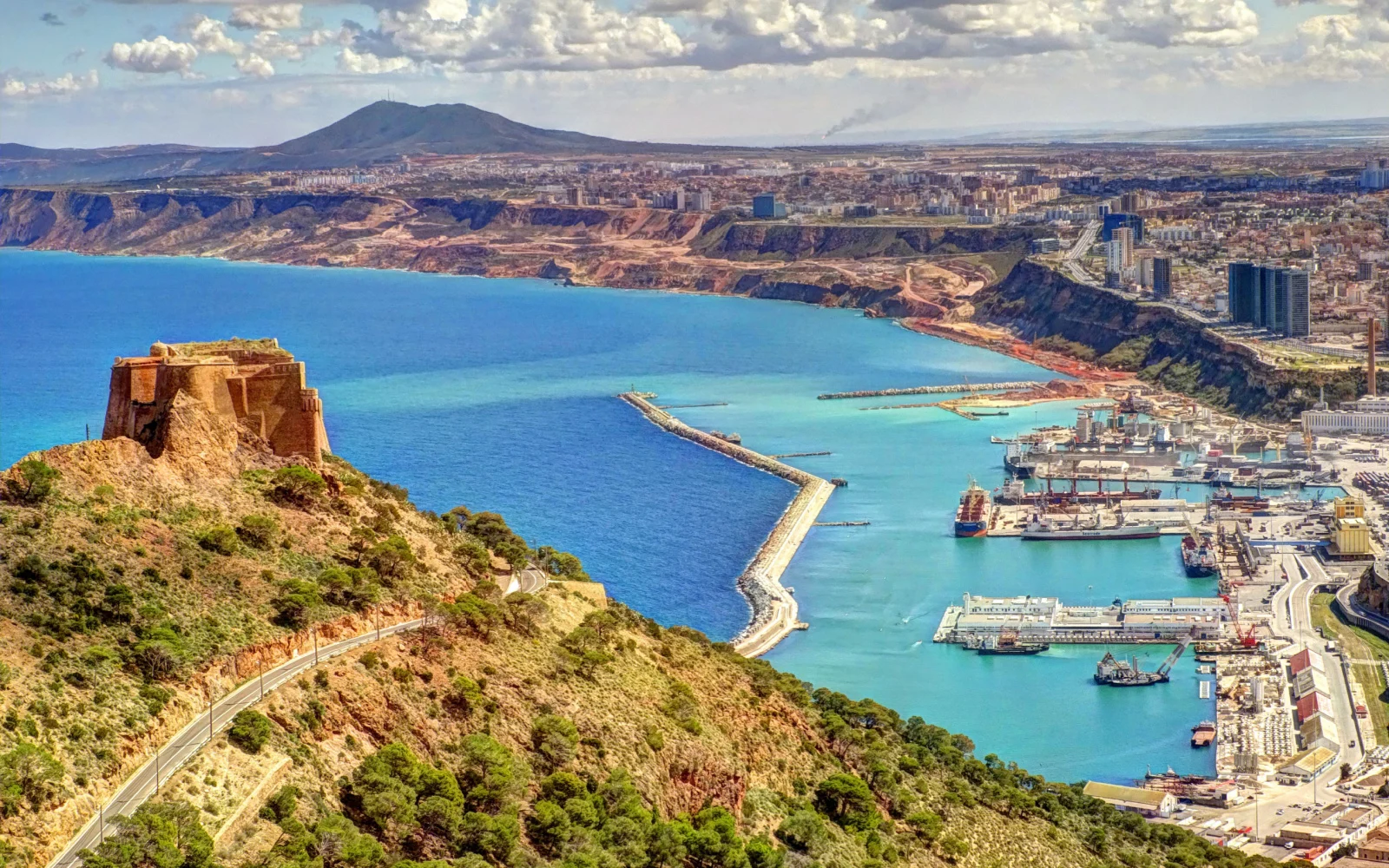Is Algeria safe to visit in 2026?
Algeria offers stunning natural beauty and cultural attractions for travelers, but safety concerns persist. While crime rates are moderate, tourists can be vulnerable to theft and scams, especially in major cities and tourist areas. Terrorism remains a risk in remote regions, and civil unrest is ongoing.
Stunning Algeria has a lot to offer the travelers who venture here. It is one of the prime destinations for adventure tourists in North Africa thanks to its vast desert, craggy mountains, and status as an off-the-beaten path destination.
Algeria is full of surprises at every corner. Visitors to the north can dip their toes in the pristine Mediterranean Sea at one of the many beaches. Discover the cities such as Algiers with their mix of French colonial architecture and winding medieval casbahs.
Talk to the friendly locals who will stuff you with delicious Algerian cuisine. Plus, check out some spectacular Roman ruins.
A look at some photos from this Saharan will be enough to tempt you to go there. But is Algeria safe to visit? Here’s our take.
Is Algeria Safe to Visit in 2026?
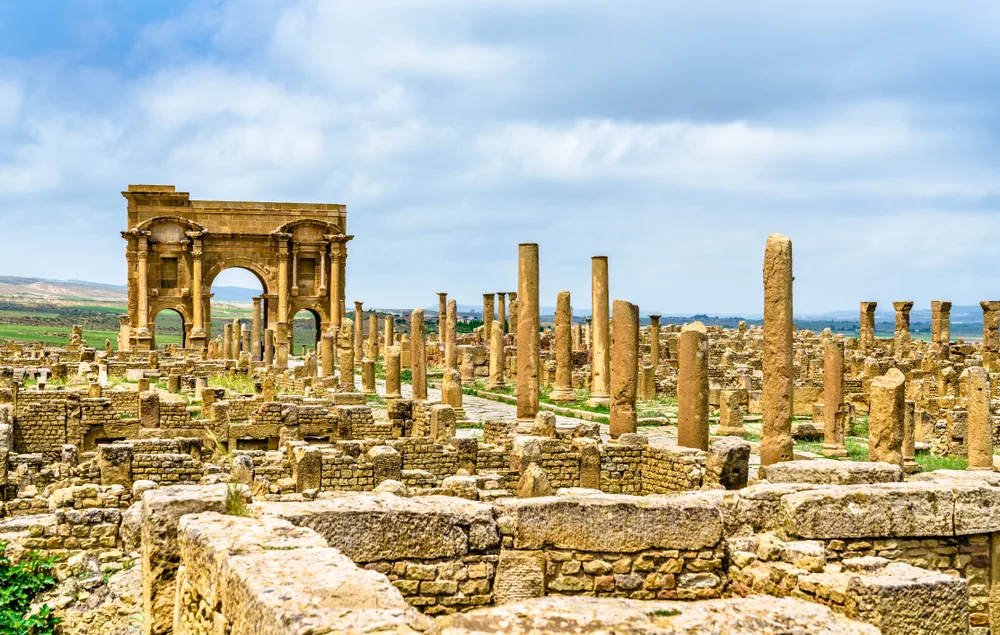
Leonid Andronov/Shutterstock
Not really. While you can visit Algeria, this is a destination where you need to exercise a higher degree of caution than you would at home.
Tourists in Algeria are vulnerable to crime ranging from petty theft to more serious incidents such as kidnapping. Although the civil war of the 1990s has calmed down, civil unrest is at a constant simmer and terrorist attacks do occur.
Many foreign governments issue travel advisories to their citizens who are considering visiting Algeria. The Canadian government advises its citizens to “exercise a high degree of caution.” These warnings are echoed by the American, Australian, and British governments, among others.
The Australian government is even stricter, advising citizens to reconsider their need to travel to Algeria. There are certain parts of Algeria where all foreign governments advise their citizens not to travel.
The Australian government tells its citizens to avoid traveling within 100 kilometers of the Moroccan, Libyan, or Tunisian borders, and within 450 kilometers of the borders with Mali and Niger.
The biggest concerns for visitors to Algeria include:
- Pickpocketing and petty theft
- Scams
- Kidnappings
- Terrorism
- Civil unrest
These threats are omnipresent in Algeria, but most tourists don’t come in close contact with them. The reason is that the Algerian government has invested considerable resources in keeping tourists safe.
This might affect your freedom of travel — for example, the UK government warns citizens that their Algerian counterparts want tourists to let them know before traveling outside of major cities. Just remember that these precautions are there to keep you safe.
Crime in Algeria
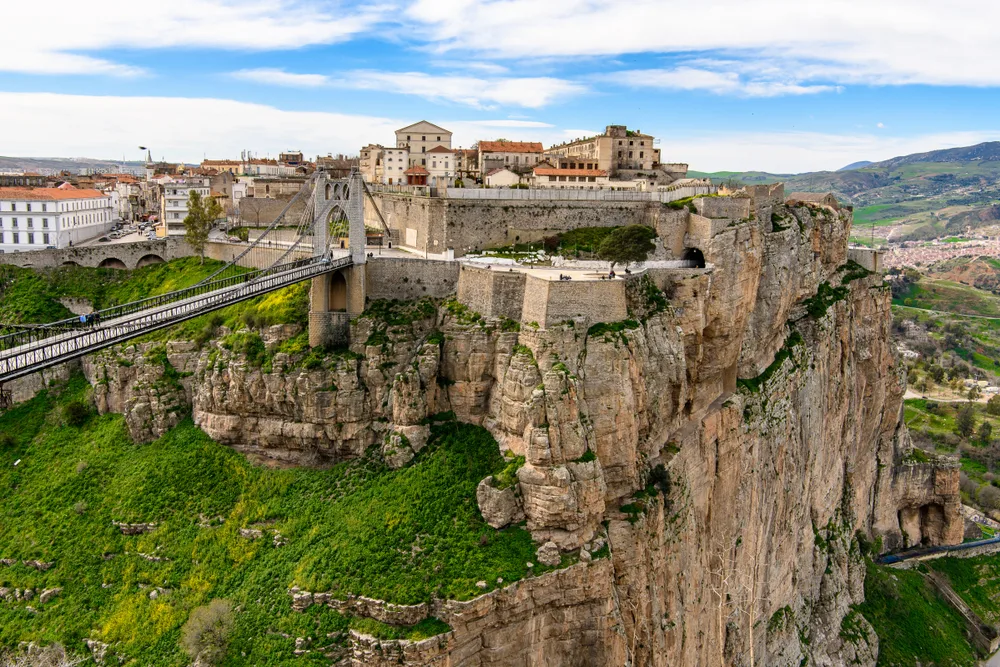
Anton_Ivanov/Shutterstock
The risk factors most foreigners tend to worry about before traveling to Algeria, or any unknown destination, is crime. Crime rates in Algeria are actually fairly moderate.
According to Statista, the crime index in 2022 was 53.82, a moderate level of crime. According to this statistic, Algeria is safer than many other more popular tourist destinations. A few things might affect this moderate crime rate.
Terrorism is not always counted in crime rates. Plus, the government’s level of control and crime monitoring over all of its territory is uneven, especially weakening in the border regions.
Outside of deaths caused by civil unrest and terrorism, the rate of violent crime in Algeria is actually fairly low. In 2020, the homicide rate was only 1.3 incidents per 100,000 people. Other types of violent crime are more common.
Armed robberies, muggings, and carjacking are common in Algeria, even targeting tourists. There have been situations where thieves pose as police officers and soldiers to rob people’s homes and cars at gunpoint.
Sometimes, theft escalates into kidnapping for ransom.
That being said, the most common crime most tourists encounter is petty theft such as pickpocketing. The security situation for foreigners is stringent, especially in major cities, and most violent crime is concentrated in border areas.
Theft
The primary concern for most visitors to Algeria is theft of all levels. Petty theft is common, especially in major tourist destinations where thieves know that wealthy tourists like to congregate.
Pickpockets are common in areas such as the Casbah of Algiers and on the beaches. You can protect against pickpockets by using the same precautions you would anywhere else in the world. Don’t flash valuables, allow yourself to get distracted while out and about, or wander unfamiliar streets at night.
Another form of low-level theft is scamming. Like anywhere in the world where there is a big wealth disparity between visitors and locals, there are some people looking to take advantage.
A popular scam is someone posing as an authoritative tour guide who will charge you eye-watering prices or lead you into a place in the city where his friends are waiting to rob you. Always stick with reputable guides.
Your hotel can recommend a reputable company or tour guide. Your hotel is an important line of defense against theft. Break-ins are common across Algeria, often targeting foreigners as they know they tend to be wealthier than locals.
Even if you don’t own a home in Algeria, you could be vulnerable to hotel break-ins. Keep all valuables in a room or hotel safe. Make sure that the hotel you are staying in has a safe, so read reviews before booking your accommodation.
While most thefts in Algeria are low-level crimes of opportunity, there are situations of more violent theft including armed robbery.
Many of these incidents target foreigners. The publishing company Country Reports warns against armed robberies, especially people posing as authority figures. Always check for badges and identification if someone stops you.
Robberies can happen at any time, but you can minimize the risk by taking a few precautions. Don’t wander around unsafe or unfamiliar areas at night. Choose your accommodation carefully.
Ask your hotel desk for advice about which neighborhoods and regions of the country to avoid. The Algerian government and private hotels invest a lot of resources in keeping foreigners safe (for better or worse) so you should be safe if you follow their advice.
Terrorism
Terrorism is the main concern for most people who are too scared to go to Algeria. Many people who are old enough to remember the 1990s remember the Algerian Civil War, when mostly Islamist terrorist groups waged war against the government.
The good news is that the situation has calmed down drastically since then. Today, Algeria’s terrorism index according to Statista is 4.43 points, showing low levels of terrorist threat.
There hasn’t been a major terrorist attack in the capital Algiers in many years. There are still terrorist groups active in Algeria. The main currently active group is Al Qaeda in the Islamic Maghreb as well as Al Murabitun and groups inspired by Daesh (ISIS).
Some of these groups have been waging war against the Algerian state for many years. Every year sees a few incidents of attacks on Algerian officials and clashes between the military and terrorist groups.
Besides bombings and other terrorist attacks, terrorist groups are known to kidnap people for ransom. In 2013, terrorists kidnapped foreigners working on a BP oil field — but the fact that this was 10 years ago shows how low your risk of terrorism is in Algeria if you travel wisely.
Terrorist activities in Algeria are confined to remote areas of the country such as the mountains on the Algerian-Tunisian border or the Sahara Desert. Terrorist activity is also far more pronounced in the south.
That is why many nations tell their citizens not to go near Algeria’s land borders as those are hotspots for terrorism. Security is tight in most places that tourists visit, such as the capital Algiers, so you won’t experience much terrorism. However, there is a risk of civil unrest.
Protests have been ongoing since 2019 as people took to the streets to protest President Bouteflika’s attempt to seek another term. The protests were met with repression.
Despite the repression, protests still happen today as the civil unrest is growing. If you hear about a demonstration, avoid the area while it goes on. Protests can quickly turn violent, and police don’t look too kindly at people who get caught up in the action.
Avoiding Bad Areas
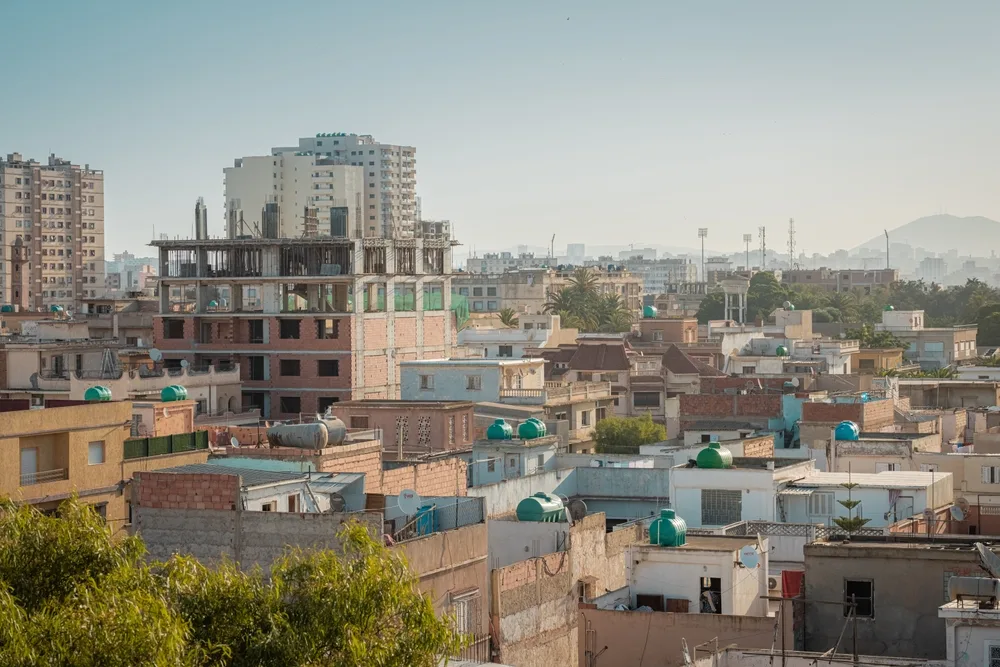
Anze Furlan/Shutterstock
The best way to ensure you stay safe in Algeria is to avoid bad areas of the country. A first step to check which areas are unsafe is to look at advisories that your government has for Algeria.
Most Western governments advise their citizens not to travel within at least 100 miles of Algeria’s land borders. The southern regions are also more prone to terrorism threats, including kidnapping. The government requires a permit to visit the south.
Unless you have a good reason to visit the south, stick to the north and coastal regions. Remote rural areas all over the country are more prone to crime and banditry.
The Algerian government requests that foreigners alert them to their plans of traveling outside of major cities, and you might be provided with armed guards. If you want to venture into the wilderness, go with a trusted guide and research your route ahead of time.
For traveling between popular destinations such as Algiers and Oran, people recommend flying instead of driving. In cities, avoid wandering around at night as that increases your risk of getting robbed.
Try sticking to the main streets whenever possible. At least for your first time visiting the Casbah in Algiers, go with a trusted guide to minimize your chances of getting lost or robbed.
Things to Consider
Here are a few things to keep in mind when visiting Algeria or planning your trip:
- The country has famous beaches, but at night they are prime spots for crime. Avoid walking or driving there alone after dark.
- Algeria has a more conservative society than you might be used to. Follow local rules such as taboos against alcohol and more conservative dress codes to avoid sticking out.
- Algeria has very strict laws about declaring how much foreign currency you have on arrival and departure. Be sure to fill out the forms because failure to declare any foreign currency results in hefty fines.
- Don’t take photos of government installations or police officers. The security situation is stricter here than you’re probably used to at home and the military won’t look kindly at someone taking photos of their bases.
Frequently Asked Questions
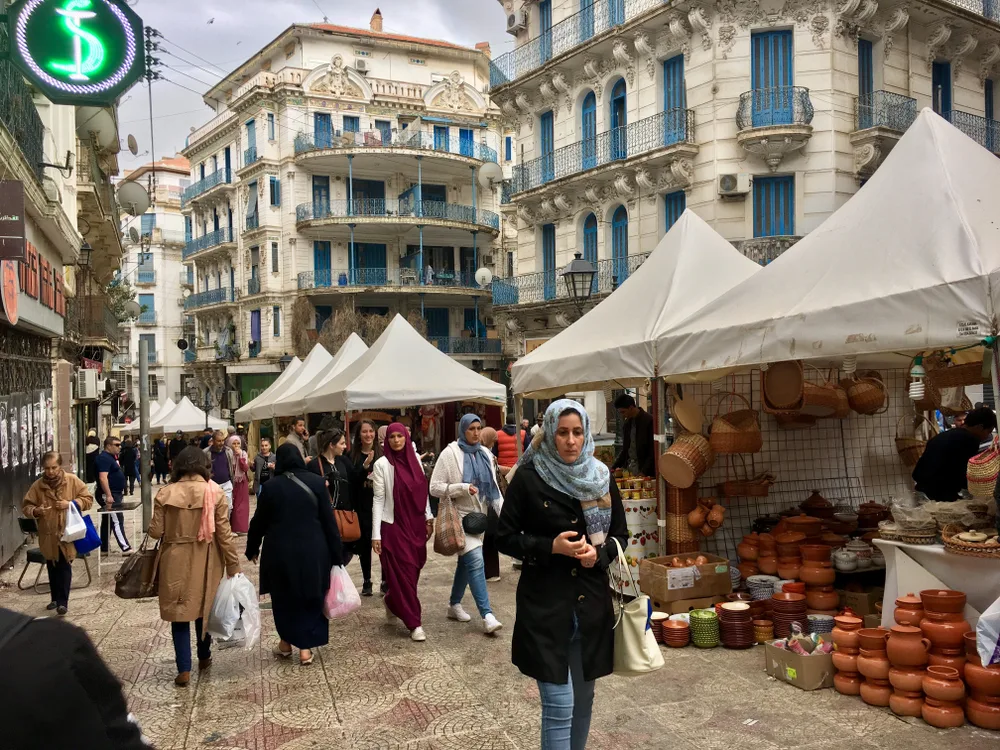
Oguz Dikbakan/Shutterstock
Before visiting Algeria, you might want to know the answers to some of these questions as well:
Why is there no tourism in Algeria?
Despite all that it has to offer, Algeria has no tourism industry, especially compared to Morocco or Egypt. One reason is that the government hasn’t invested much in tourism since the country gets most of its wealth from oil. All other industries, including tourism, didn’t receive much support.
Are Algerian people friendly?
Yes, Algerian people are friendly. Most people are excited to meet foreigners that want to get to know their country, especially since so few foreigners arrive. Algerians are famous for their hospitality and welcoming culture.
Is Algeria safe for female tourists?
Visiting Algeria is definitely tougher as a woman than as a man. Cultural norms are much more conservative, and there are high rates of sexual harassment. While many women travel to Algeria and have great experiences, if you’ve never traveled to a Middle Eastern or North African country before, it is not a great first destination.
Can you drink alcohol in Algeria?
Almost all Algerians are Muslim, and alcohol is banned in Islam. There is some local alcohol production, mostly craft beer and traditional wine, that you can find in sketchy bars and hotel restaurants. You can drink alcohol, but access to it is limited and completely banned during Ramadan.
What should I avoid in Algeria?
Avoid traveling to border areas that are unsafe due to the terrorism risk. Avoid traveling in rural areas on your own and avoid breaking local rules. Make sure to read local laws and regulations carefully.
So, Is Algeria Safe to Visit in 2026?
When traveling to Algeria, you want to be more cautious than you would at home due to higher risks of theft as well as violent crime.
However, if you stay away from border regions and other dangerous parts, you can have a great trip to the country without feeling unsafe. Happy travels!



